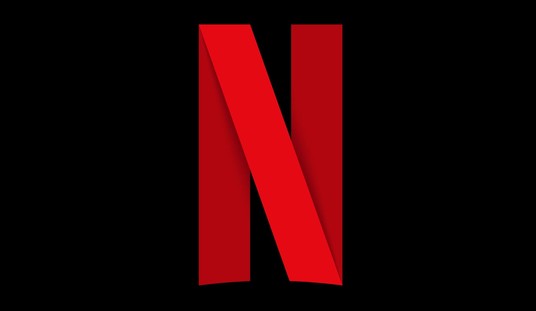I wrote earlier that OJ Changed My Life, but, of course, 1968 changed my life too Рthough I was in no way exceptional in that. A fair swatch of my generation claims to have had their view of the world altered that year whose signal importance has become a cliché.
The question is why. At the time we all thought there were two reasons – opposition to the Vietnam War and rebellion against the cultural values of the Fifties. Most still see it that way. But I wonder if there is more to the story.
Looking back on that year now, I am puzzled by two rather curious and related phenomena – one, 1968 (about to have its forty year anniversary) seems relatively far away, yet its values continue to dominate our culture; two, 1968 is considerably closer to World War II than it is to today. Almost shockingly from a larger historical perspective, the Chicago Convention was a scant twenty-three years after the liberation of Auschwitz.
What does that proximity to the greatest horrors of recorded history mean – a period when fifty to sixty million people across the world were murdered or killed in global war, some of those millions in the most mechanized fashion ever, brought to concentration camps in freight cars and then gassed? For many years I ignored this proximity or, more exactly, didn’t notice it. A good liberal/lefty, I accepted the received wisdom of the era and did my best to adopt the proper attitudes, like the proper music and films and so forth. I made love, not war. But events and the passing of years have caused me to contemplate the cause of it all.
So what am I driving at here? The Fifties, as is generally acknowledged, were a natural era of calm conventionality – decompression after a period of extraordinary, almost incomprehensible violence. The generation coming home – the so-called Greatest Generation – wanted nothing more than peace and quiet, a return to normality. Why wouldn’t they have? But their children needed something else. They hadn’t participated in the war, weren’t direct victims of its horror but rather spectators at a storytelling. Nothing could be as bad for them as what their parents had seen with their own eyes and they knew it. In a sense the younger generation were weaklings, outsiders. They needed something of their own.
Also worth noting is that many of the iconic figures of 1968 – Abbie Hoffman, Jerry Rubin, Alan Ginsburg, Bob Dylan, even Daniel Cohn-Bendit of the May ’68 “events” in Paris – were Jewish. And if you look at their birth dates, these men were not “Boomers” as conventionally defined. They were born before or during, not after, World War II, but none of them suffered directly from the Holocaust (although in many cases their relatives did).
So through these men – and others obviously – the era of sex, drugs and rock and roll was born. What’s interesting about this ethos is that it denies evil – just love each other and we will all be fine. And yet how evil was the Holocaust. Even so, “Zimmy,” born while the ovens were in full operating mode, doesn’t sing about it. He preferred the “times they are a-changin’.” Moving right along, as the saying goes. We don’t want to contemplate evil – in fact we don’t believe in it. “Turn in, tune in, drop out,” as Father Timothy said, also opining within a couple of decades of the Shoah. In his case, he and Richard Alpert (another Jew) were blasting us into another dimension as early, I think, as 1961. (They were ejected from Harvard in ’63.) Evil? Who cares? Let’s be at one with the universe.
Now, to be clear, not being a conventionally religious person, I – and I am sure others – am not completely comfortable with the word “evil” either. So allow me to redefine this Manichean term as pathology for those of a more scientific bent. It was this pathology that 1968, unconsciously, sought to deny. Nothing in human life could be as the extremes of World War II – people could not be that pathological (or evil, if you prefer). All they need is a little love. So let’s go out and have as much fun as possible, drop acid, get naked and boogie. (Also, unspoken, we may all die soon anyway. Look what happens – lots of people die young.) Meanwhile, underlying the lyrics to John Lennon’s “Imagine,” a song which for decades brought tears to my eyes, is this almost willed denial of these forms of mass mental illness, these large-scale political pathologies, as if you could destroy a virus through a sing-along, rather than inoculation.
Now I am not saying everything was wrong about the “1968 Revolution”. I still like the music and it helped spur women’s and homosexual equality, among other things. But it did create a blindness to this pathology/evil that explains a lot of our dilemma today. The “Boomers” were the younger sisters and brothers of the ’68 people who were the objects of envy. The tortured Abbie may have killed himself, but his ideology – in a highly watered down, bourgeois form, of course – lives on through them in the pages of the New York Times and similar institutions. The Chicago Seven were, after all, the “cool guys”. Everybody wanted to be like them. I know that was true for me. I remember well sitting in a tiny London flat – I was twenty-four and in Europe trying to write a novel – watching the Convention on the BBC. Oh, how I wanted to be there! And soon enough – I was, marching and protesting and enjoying that life of sex, drugs and rock and roll (well, to some extent – I have my Puritan side).
But now, when we live an era of another virus whose ability to spread is bred in its ideology, thinking back on the self-indulgence of this is oddly disquieting, though I don’t mean to flay myself for what I did or what I was then. We are all creatures of our times. And I am glad for the experiences I had.
Roger L. Simon is an Academy Award-nominated screenwriter, novelist and blogger.









Join the conversation as a VIP Member